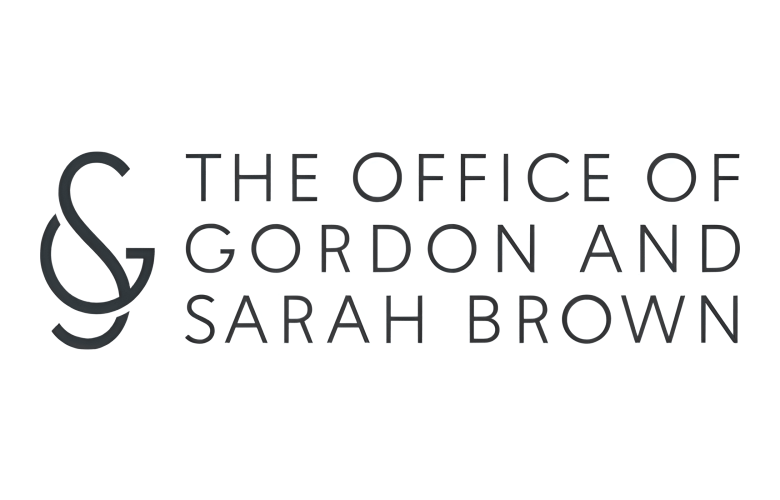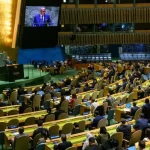65 past and present leaders call on the G20 to approve now USD 8bn emergency global
health funding to prevent a second wave of coronavirus. In an open letter addressed to the G20,
the leaders called on debt interest payments of poorest countries to be waived and that a global
fiscal coordination essential to avoid recession turning into depression.
Furthermore, the open letter warned that without rapid support, 1.2 million covid-19 deaths are
possible in Africa and Asia’s poorest countries amid danger of igniting a second round of
disease in the rest of the world.
The letter also underlines that the race for vaccine, cure, test kits, ventilators and protective
equipment for health workers demands enhanced co-operation and concerted global push to
increase capacity.
“The economic emergency will not be resolved until the health emergency is addressed: the
health emergency will not end simply by conquering the disease in one country alone but by
ensuring recovery from COVID-19 in all countries,” the statement says.
The plea is for agreement within days for: USD 8 billion to rapidly hasten the global effort for
vaccines, cure and treatment; USD 35 billion to support health systems, from ventilators to test
kits and protective equipment for health workers; and USD 150 billion for developing countries
to fight the medical and economic crisis, prevent a second wave of the disease flowing back into
countries as they come out of the first wave.
A $500- $600billion issue of additional resources by the IMF in the form of special drawing rights
is proposed.”
While welcoming the G20’s first communique on the Covid-19 crisis, the 165-strong group are
pressing the G20 to speed up an action plan. The group states: “All health systems – even the
most sophisticated and best funded – are buckling under the pressures of the virus. Yet if we do
nothing as the disease spreads in poorer African, Asian and Latin American cities which have
little testing equipment, hardly any ventilators, and few medical supplies; and where social
distancing and even washing hands are difficult to achieve, Covid-19 will persist there – and
re-emerge to hit the rest of the world with further rounds that will prolong the crisis.”
“World leaders must immediately agree to commit USD 8 billion – as set out by the Global
Preparedness Monitoring Board – to fill the most urgent gaps in the COVID-19 response. This
includes USD 1billion this year for WHO, USD 3 billion for vaccines and USD 2.25 billion for
therapeutics.”
“Instead of each country, or state or province within it, competing for a share of the existing
capacity, with the risk of rapidly-increasing prices, we should also be vastly increasing capacity
by supporting the WHO in coordinating the global production and procurement of medical
supplies, such as testing kits, personal protection equipment, and ITU technology to meet fully
the worldwide demand. We will also need to stockpile and distribute essential equipment. The
USD 35 billion will be required, as highlighted by WHO, to support countries with weaker health
systems and especially vulnerable populations, including the provision of vital medical supplies,
surge support to the national health workforce (70% of whom in many countries are underpaid
women) and strengthening national resilience and preparedness.”
The letter cites also that according to WHO, almost 30% of countries have no COVID-19
national preparedness response plans and only half have a national infection prevention and
control program. Health systems in lower income countries will struggle to cope; even the most
optimistic estimates from Imperial College London suggest there will be 900,000 deaths in Asia
and 300,000 in Africa. “We propose convening a global pledging conference – its purpose
supported by a G20 Executive Task Force – to commit resources to meeting these emergency
global health needs,” it states.
On the Global Economic outlook, the group proposes a range of measures and states that much
has been done by national governments to counter the downward slide of their economies. But
a global economic problem requires a global economic response.
“Our aim should be to prevent a liquidity crisis turning into a solvency crisis, and a global
recession becoming a global depression. To ensure this, better coordinated fiscal, monetary,
central bank, and anti-protectionist initiatives are needed. The ambitious fiscal stimuli of some
countries will be all-the-more effective if more strongly complemented by all countries in a
position to do so.”
The letter underlined that the long term solution is a radical rethink of global public health and a
refashioning – together with proper resourcing – of the entwined global health and financial
architecture and that UN, the G20 and interested partners should work together to coordinate
further action.
World leaders call on G20 to act immediately in response to COVID-19
World leaders call on G20 to action immediately pledge finance and to coordinate on wod response to COVID-19.

Share post
Most Popular
- BUSINESS
- ENTERTAINMENT
- HEALTH
- LIFESTYLE
- NEWS
- OPINION
- TECHNOLOGY
- THE ENTREPRENEUR
- Uncategorized




